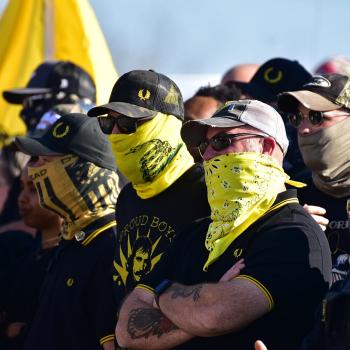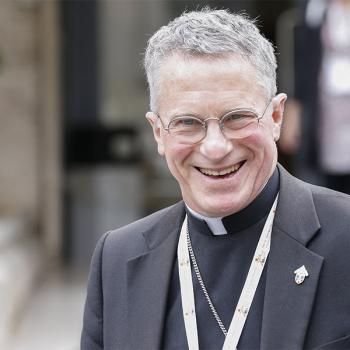Why did you decide to call your book Mobilizing Hope?
Hope is the oxygen behind social and political change. Hope illuminates new possibilities and can make what was once impossible become inevitable. We have access to an inexhaustible, limitless, and resilient hope because of Christ's victory over sin and death on Calvary's cross. Activism without hope can easily become self-serving, self-righteous, and angry. As I write in the book, "Activism without hope is like a balloon drained of air; it quickly deflates and loses its ability to rise in the air. Hope is the oxygen that inspires and sustains activism. Too often campaigns fail because of a deficit of hope. Too much spite, anger, or malice suffocates the hope out of activism. Hope animates our vision of what's possible and guides what we are striving to achieve in the context of transformed nonconformism. Fortunately, hope is at the very heart of faith."
Hope and faith are inextricably linked and mutually reinforcing. Hope is the antidote to fear. Hope enables people to withstand incredible adversity and hold on even in the midst of persecution or seemingly impossible odds. Hope fuels and shapes our vision of a preferred future. For campaigns for social and political change to be successful, they must harness and sustain hope.
Does activism need faith? And vice versa?
At their best, activism and faith are mutually reinforcing and interdependent. Activism is integral to living out our Christian discipleship and directly tied into building God's kingdom come. Faith provides the vision and motivation behind activism—a sustaining and empowering source for change. Faith without a commitment to activism can often become narcissistic and myopic. Activism without the sustaining power and discipline of faith can often burn out or go astray. However, faith does not have a monopoly on morality or effective activism. Many of the best movements have been driven by faith but were always inclusive, involving people of conscience and of no religious faith at all.
Many people don't see Jesus as an activist, and therefore don't feel Christians are called to civic or political engagement. What would you say to them?
I would tell them to reexamine Jesus and resist ways in which our culture has overly de-radicalized and domesticated Christ. Christ wasn't political in the sense we know it today, but he cared about and spoke to every dimension of human life, including the social, political, and economic. Christ's bold entrance into the temple in which he overturns the tables of the moneychangers for defiling the temple and exploiting the people is just one of many examples we could point to of Christ's activism and creative maladjustment. Christ wasn't revolutionary in the way we typically understand it today—he did not lead a political revolution to overthrow the oppression of the Roman Empire, as much as many of the Jews hoped he would. Instead he led a spiritual revolution of values that represented a threat to the Pharisees as well as the Roman Empire. We should remember that Christ was ultimately crucified for the political transgression of sedition.
You recently finished up a year as a White House Fellow. What kinds of things did you participate in throughout your time there?
In addition to weekly seminars with leaders in politics, media, and civil society and a series of policy-oriented domestic and international trips, every Fellow serves for a year working in the White House or at a federal agency. This past year I had the opportunity to work in three different offices within the White House. In the Office of Cabinet Affairs, I served as the liaison between the White House and a diverse group of agencies, including the Corporation for National and Community Service, the Peace Corps, the Millennium Challenge Corporation, the Office of Personnel Management, and the Office of National Drug Control Policy. In the Office of Public Engagement I served as the liaison to leaders and organizations that work on domestic poverty, organizing conference calls, meetings and a half-day conference on expanding economic security and opportunity. Through the Office of Intergovernmental Affairs I co-coordinated the president's task force on Puerto Rico's status, which makes recommendations to the president on how to resolve the delicate issue of status and advance economic development on the island.
As you mentioned earlier, you write in your book that "hope animates our vision of what's possible and guides what we are striving to achieve." What is your hope for the future?
My hope for the future is that we can find new ways to find common ground across the chasm of partisanship and culture that divides the U.S. and that the church serves at the forefront of revitalizing our democracy by engaging in politics on behalf of the weak, the vulnerable, and the oppressed. I hope that a younger generation can revive the spirit of the early Student Nonviolent Coordinating Committee and apply a resilient commitment to social justice to the most pressing issues and crises facing the nation and world. I hope that we can build a bridge from our current predicaments to a new reality that accelerates God's kingdom come by creating kingdom space in the here and now.
Visit the Patheos Book Club for more resources on Mobilizing Hope, including a book excerpt and an online discussion.




